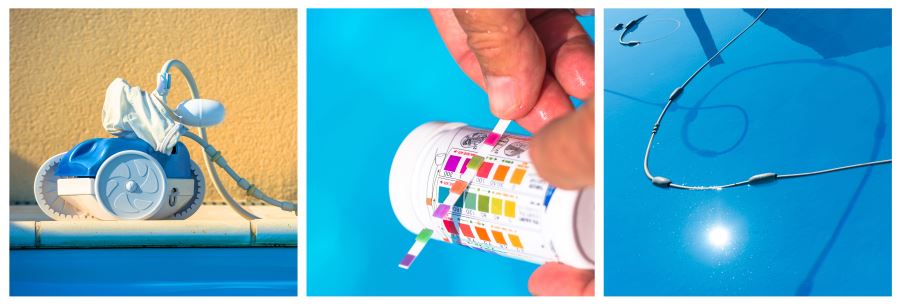
Ever wondered where that 'pool smell' comes from?
What about red eyes after swimming?
Most people think it's from too much chlorine, but often the truth is quite different!
The smell is actually from chloramines. Chloramines are produced when the chlorine combines with organic material introduced to the pool. These nasties - if allowed to build up - can destroy your pool blanket, pool liners and some plastics!
Chlorine is essential to ensure that your pool is disinfected and safe to swim in. Without disinfection you are at risk of developing all manner of infections from tinea, to swimmer's ear or even diarrhoea and other gastroenterological diseases. When we smell chloramines, we are smelling the chlorine doing its job; disinfecting the pool by reacting with all that organic matter.
What organic material?
Every time you enter the pool you introduce organic material. Oils from your skin, perspiration, skin cells and worst of all, urine. All of these contribute to the organic load in the water that must be treated.
The science:
Chlorine is a powerful and effective disinfectant. In your pool, what we refer to as chlorine is present in two forms; hypochlorite ion which is added to water as calcium hypochlorite - this in turn reacts with water to form hypochlorous acid. The amount of these two forms of chlorine are what we measure when we test our pool water for chlorine.
Chlorine has an affinity for ammonia, so that 'pool smell' is the hypochlorous acid binding to the ammonia and forming chloramines.
We often assume what we're smelling is too much chlorine, and that maybe someone overdosed the pool. But we're wrong! When we can smell chloramines, the pool may actually need
more chlorine!
So, if you want to use less chlorine overall and smell less chloramines, the solutions are simple:
- Have a quick shower before going in the pool - this reduces the organic burden that each of us brings into our pools by washing off any accumulated perspiration and oils on our skin and hair.
- Always remove yourself from the pool to go to the toilet, and ask the children to have regular breaks when they swim to avoid any "accidents".
- Never allow anyone to swim in the pool if they have diarrhoea or other gastric conditions, as the material here is slow to break down and can infect others for some time!
Follow these simple rules and you'll be enjoying a fresh-smelling and hygienic pool all summer long!